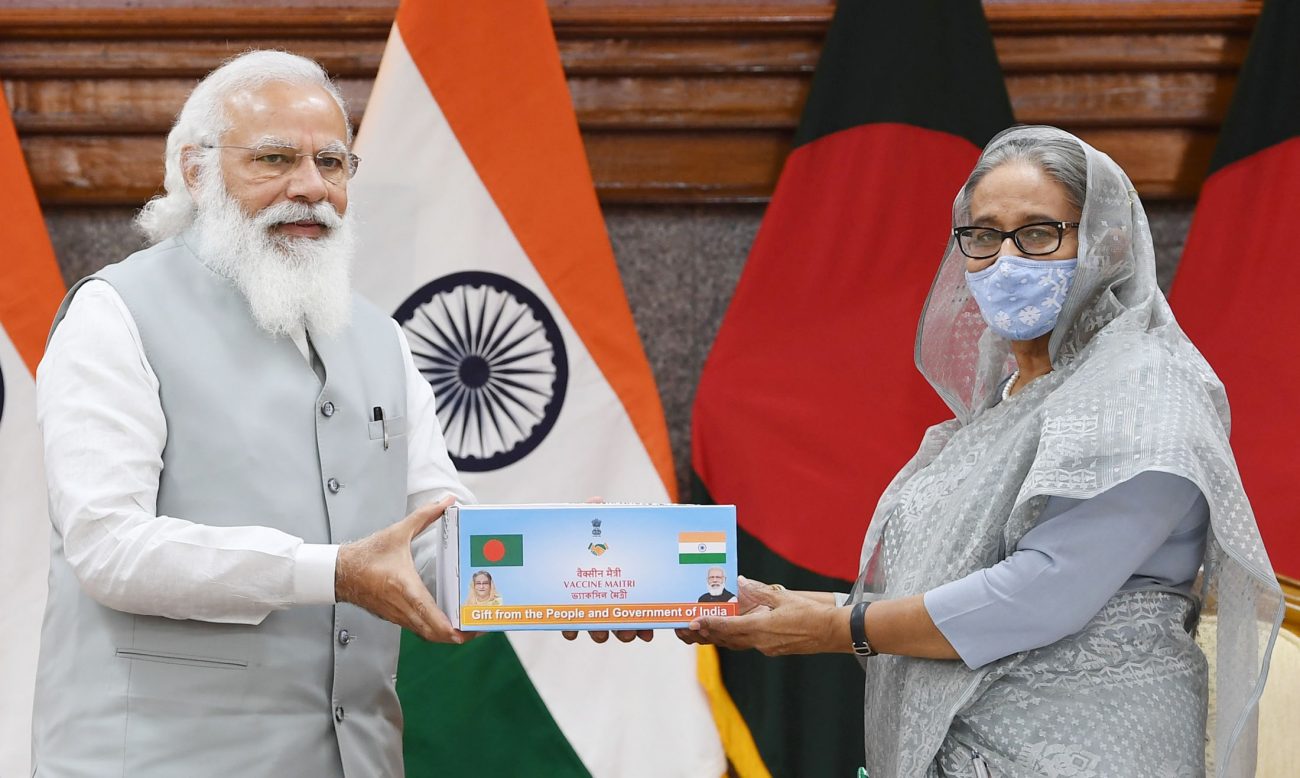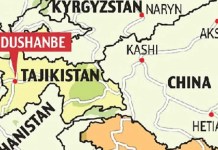By: Salah Uddin Shoaib Choudhury
The genocide against Hindus in Bangladesh, which erupted in the aftermath of Sheikh Hasina’s departure on August 5, has reached alarming proportions. This mass exodus followed an Islamist revolt orchestrated primarily by members of Hizb ut-Tahrir, Jamaat-e-Islami, Hefazat-e-Islam, and other radical Islamic groups.
Amid this turmoil, Muhammad Yunus, in a recent interview, downplayed the severity of these attacks on minorities. He dismissed reports of violence as occurring “only in some cases” and claimed that most complaints were “completely exaggerated”.
In a chilling echo of historical atrocities, extremist groups now act with impunity fueled by state complicity and international silence. As the global community turns a blind eye, millions of Hindus are left to endure unimaginable horrors, raising urgent questions about accountability, justice, and the world’s moral responsibility.
With Sheikh Hasina ousted, the rise of Islamist and jihadist forces in Bangladesh has become increasingly evident. Radical groups, emboldened by the lack of accountability, are publicly displaying flags of Al-Qaeda and ISIS. Yunus loyalists and other Islamist factions are leading this wave of terror, turning the country into a stronghold of extremism.
Some influential advisors to the revolutionary regime in Dhaka have consistently denied the persecution of Hindus. Instead, they accuse Indian media of “spreading disinformation” about the ongoing violence.
In this climate of denial, extremist groups such as Hefazat-e-Islam have called for the slaughter of Hindus and members of ISKCON. These open calls for genocide have been met with no legal action by the Yunus regime.
The perpetrators of these atrocities were shaken when former US President Donald Trump issued a strong statement on Diwali condemning the violence against Hindus in Bangladesh. Trump described the situation in Bangladesh as being in a “total state of chaos.” His remarks drew attention to the dire conditions facing the Hindu community.
In a recent article, I speculated that if Trump wins the US presidency in the upcoming election, he may implement severe measures against Bangladesh. These could include broad sanctions or restrictions targeting specific individuals responsible for the ongoing genocide.
Under Muhammad Yunus’s leadership, Islamist student protesters have established a parallel government resembling Iran’s Islamic Revolutionary Guard Corps (IRGC). This group operates with impunity, executing mob justice against dozens of individuals, particularly Hindus. Despite the escalating violence, the perpetrators remain shielded from accountability, exacerbating the humanitarian crisis.
Muhammad Yunus, a major donor to the Clinton Foundation, has long-standing ties to influential figures like the Clintons, Barack Obama, and George Soros. Following Trump’s victory over Hillary Clinton in 2016, Yunus expressed bitter disappointment, referring to the election outcome as a “solar eclipse.”
Leaked cables from 2007 revealed that Hillary Clinton had pressured the Bangladesh military to appoint Yunus as head of the then-interim government, underscoring the depth of their relationship.
After Sheikh Hasina’s ouster, the Biden administration quickly expressed its willingness to cooperate with the Yunus-led interim government. Pro-Yunus think tanks celebrated this stance, highlighting his extensive network within Washington’s corridors of power. Yunus has also garnered admiration from anti-Trump Republicans for his vocal opposition to the former president.

However, they neglected to mention Yunus’s well-known connections within the US Capitol, where he is regarded as a staunch Democratic supporter and a major donor to the Clinton Foundation. Yunus has earned admiration from anti-Trump Republicans for his strong opposition to Trump.
During his recent trip to the United States for the UN General Assembly, Yunus reinforced his ties with the Clintons and Soros. Bill Clinton openly praised Yunus and his associates for their role in the “anti-Hasina revolt,” signaling tacit approval of the current regime’s actions.
Through engagements with the Clintons, Alexander Soros, and President Joe Biden, Yunus sent a clear signal to Trump, his campaign, and key Republican figures: the revolutionary government in Dhaka enjoys solid support from the Clintons, Soros, and the Democratic Party.
In a shocking turn of events, Mufti Jashimuddin Rahmani, the leader of the Al-Qaeda-affiliated Ansarullah Bangla Team (ABT), was released following Hasina’s ouster.
Rahmani wasted no time in calling for jihad against India, urging the liberation of West Bengal from “Modi’s Rule.” The release of this notorious jihadist, who was responsible for the murder of US citizen Avijit Roy in 2015, has gone unquestioned by the Biden administration, despite previous US efforts to hold him accountable.
Following his release, Rahmani, along with dozens of imprisoned Islamists and jihadists, was released. Shortly after his release, Rahmani appeared in a viral video, calling on West Bengal Chief Minister Mamata Banerjee to “free Bengal from Modi’s rule and declare its independence.”
In December 2021, the US Department of State’s Diplomatic Security Service, through its Rewards for Justice (RFJ) office, announced a US$5 million reward for information on the terrorist attack in Dhaka, Bangladesh, which resulted in the death of a US citizen, Avijit Roy, and the serious injury of his wife, Rafida Bonya Ahmed.
The plight of Hindus in Bangladesh has worsened significantly. Hundreds of Hindu government employees, including teachers, have been forced to resign under the pretext of being “collaborators of Sheikh Hasina’s fascist rule.”
Calls for Hindus to leave Bangladesh and migrate to India are growing louder, driven by a campaign of dehumanization led by Islamist mobs.
Indian-American groups are mobilizing to push for US action against the Yunus regime, including economic sanctions. Reports of murder, rape, and arson targeting Hindus have reached alarming levels, yet Yunus appears indifferent, if not complicit, in these atrocities.
The persecution of Hindus in Bangladesh is not a recent phenomenon. Since the medieval era, Hindus have faced unimaginable cruelties, including killings, forced conversions, and the illegal seizure of their properties. Temples have been destroyed or repurposed as mosques and madrassas. The current wave of atrocities is a continuation of this long history of oppression, yet it has failed to garner significant international attention.
Except for Donald Trump, global leaders have remained silent on the crisis. This silence is partly due to Muhammad Yunus’s carefully cultivated image as a virtuous leader and his extensive connections with influential figures. Preserving Yunus’s reputation appears to take precedence over addressing the ongoing genocide.
The Biden administration’s muted response to the atrocities in Bangladesh is troubling. During Yunus’s recent visit to the US, he introduced several Islamist leaders as “masterminds” behind the anti-Hasina movement. These individuals were publicly applauded by Bill Clinton, signaling a high-level endorsement of their actions.
For Hindus in Bangladesh, waiting for Trump’s potential return to power in January 2025 may be too late. The atrocities are escalating, and immediate intervention is required. A strong message from Trump or other international leaders could put pressure on Yunus and his regime to halt these crimes.
Meanwhile, according to media reports, Indian Americans are planning to engage with the Donald Trump administration and Congress next year to push for action against the Yunus-led regime in Bangladesh, seeking economic sanctions, citing the alleged persecution of the Hindu community. The degree of orchestrated attacks, murder, rape, and arson attacks targeting Hindus in Bangladesh has already crossed the alarming level.
The genocide against Hindus in Bangladesh is a human rights crisis that demands urgent global attention. The silence of world leaders, coupled with the Biden administration’s apparent complicity, has emboldened the perpetrators. As the world watches, millions of lives hang in the balance.
President Donald Trump has shown that he cares about the plight of Hindus. His intervention, even in the form of a strongly worded statement, could save countless lives and bring hope to a persecuted community. It is imperative that the international community acts decisively before it is too late.
The plight of Hindus in Bangladesh is a dire humanitarian crisis that demands immediate international attention. The silence of global leaders, coupled with the complicity of powerful allies of the current regime, has emboldened the perpetrators of this ongoing genocide.
Time is of the essence. The world must not wait for further escalation before taking decisive action to protect the vulnerable and hold those responsible accountable. Only through collective global pressure and decisive intervention can the cycle of violence be broken, offering hope and safety to the millions of Hindus who continue to suffer.
- Salah Uddin Shoaib Choudhury is an internationally acclaimed multi-award-winning journalist, writer, research-scholar, and Editor, Blitz. He regularly writes for local and international newspapers.
- VIEWS PERSONAL OF THE AUTHOR
- Follow him on X @Salah_Shoaib




